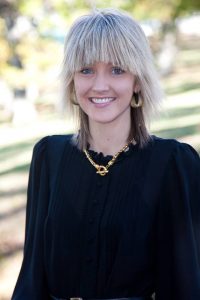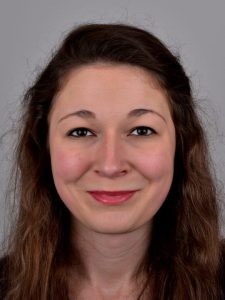Alumni Stories
Our alumni are hugely important to us and they have gone on to achieve in many different areas. Alumni are now playing an active part in NZIBO, acting as tutors, updating assignments and tutorials and supporting our students on camp as camp leaders. We strongly encourage all alumni to join our alumni Facebook page link and keep in touch.
On this page we highlight our wonderful alumni and celebrate their successes.
Kate Duggan Inaugural team member 2005, Douglas Robb award recipient and top Senior Scholar in medicine and surgery 2011, University of Auckland
 My name is Kate Duggan, and I was lucky enough to have travelled to Beijing, China in 2005 as part of the inaugural New Zealand contingent to the International Biology Olympiad. It was an utter thrill from start to finish: as the first time New Zealand had participated, we were treading new ground entirely, and the organisers were as excited and nervous as the team.
My name is Kate Duggan, and I was lucky enough to have travelled to Beijing, China in 2005 as part of the inaugural New Zealand contingent to the International Biology Olympiad. It was an utter thrill from start to finish: as the first time New Zealand had participated, we were treading new ground entirely, and the organisers were as excited and nervous as the team.The preparatory experience and selection camp was an exceptionally well-run affair, involving tutorials at Kings College and Waikato University. There was botany and microbiology, scientific drawing, late nights, timed quizzes, early-morning starts, team dinners and a marae stay.
China itself was a deeply defining experience. It’s a land of red sun and hazy sky, a land thick with buskers and noodles and history. We roomed at a lavish hotel in the city centre, and I shared a suite with a Moldovan competitor. At night, our balcony looked out over Mandarin fluorescent signs as far as the eye could see, and we ate in a different dining hall every night: sumptuous buffets with dumplings, glossy pots of steamed vegetables, sticky pork, sweet-and-sour dishes, duck, wontons, and myriad desserts. The city was preparing to host the 2008 Olympics, and the organisation of the Olympiad reflected this: we woke every morning to competition newsletters and run-sheets alongside our orange juice. We were given coloured tee-shirts for each day of the tour, and embroidered lab coats. Our tours ran to the minute, and every whim was catered to.
At Peking University, the competition ran like clockwork. Flags were hoisted at the opening ceremony, and there were incredible circus-type dance performances and flashbulbs and live bands. The exams themselves ran with military precision: plant dissections, carefully-annotated experiments, labelling exercises and multi-choice sections.
The most powerful stuff, though, was the social and the cultural. We visited the Forbidden City and Mao Zedong’s tomb, and cruised on gondolas through draping willows at ancient Chinese gardens. We went to a circus with mind-blowing contortionists and human pyramids on bicycles; and we ate Peking Duck at an establishment previously patronised by Bill Clinton, Nelson Mandela and Michael Jordan. We had private dragon-dance shows and a day-trip to the Great Wall. Our cultural guide took us for a night out on the town, where we paddle-boated under lantern-light on an inner city lake surrounded by restaurants. We learned to barter in Wanfujing, where the shopping was incredible (I’ve still got my chopstick-set, each one hand-painted in red lacquer). There were banquets and prizegivings, closing ceremonies and breakfast buffets. We fraternised with the Irish, the Nigerians, the Australians: all of them warm and convivial and kind; despite language barriers.
This seems like a lifetime ago, now. Eight years on, I’m working as a junior doctor (medical registrar) at Tauranga Hospital, having graduated from Auckland Medical School in 2011. I graduated from the overall degree as the most distinguished student in my class, receiving the Douglas Robb award for the Most Distinguished Academic Performance across the degree programme, and being named as the top Senior Scholar in medicine and surgery.
Medicine is a long, hard slog, with giddying highs and lows: but overall, I wouldn’t be doing anything else. It’s a constantly-challenging career, which draws on one’s scientific acumen AND on one’s humanity. You need focus, drive, and life balance; and an understanding that you’ll be learning every day of your career. There’s a lot of humility involved, and a constant need for teamwork, empathy and communication. Having just stepped up from a house officer position to a registrar role, the learning curve gets steeper daily. In a career capacity, I’m attracted to physician-type specialties; and have been variously captivated by general internal medicine, rheumatology, nephrology, endocrinology, gastroenterology, fertility medicine, and psychiatry.
Life outside of medicine is crucial, and I’m a lover of creative writing, literature and the arts. I was lucky enough to win a major short story competition earlier in the year, and have had a few other short stories purchased and broadcast on Radio New Zealand National. I am being mentored by Tessa Duder in the production of more work, and am an enormous fan of contemporary literary fiction (and its litany of festivals and blogs). I’m also a travel buff: since China, I’ve been lucky enough to tick off Costa Rica, parts of the States, and several Pacific Islands; and also lived in Vancouver, Canada for three months during my final year of medical school (we had time to tramp in the Rockies, and visit Banff, Jasper National Park, Lake Louise and Vancouver Island; and spent time in Seattle and Whistler).
Having got engaged in February of this year (my fiancée, Mark, is a fellow doctor); the future is looking busy. I’m still not completely decided on medical specialties, but am likely to sit Physician exams in the next year or so, and am also planning a decent six-month Europe sojourn (and a likely wedding in early 2015).

I took the national entrance exam for NZIBO in 2009 with little expectation of making it through. Being selected to take part in the tutorial programme, and subsequently in the practical training camp, played a huge part in building my confidence as a budding scientist, and allowed me to meet students from all over the country who share my passion for biology. These experiences cemented my interest in genetics and zoology, and in 2011 I found myself at the University of Otago, starting a Bachelor of Science with a double major in these two subjects.
The skills and knowledge I gained from participating in the NZIBO programme provided me with a huge advantage coming into university. A great deal of the first year university curriculum was covered during the programme (some of my courses even used the same textbook!), and I was able to approach labs with much more confidence because of the practical components of the training camp. I think the most important lesson I took from the NZIBO programme was how to direct my own learning, which was absolutely essential to keeping on top of university work.
Coming into Otago, I had known what subjects I wanted to do, but not exactly where they might lead me. During my studies I became more and more interested in the intersection between evolution and development – the field known as “evo-devo” – and I was able to put this interest into practise in my Honours year, completing a research project on the evolution of an important developmental protein family, the “Noggin” family, in arthropods. Something they don’t prepare you for in your undergraduate lectures is just how often you will contend with failure as soon as you step into a lab, and this was definitely a steep learning curve for me. However, I completed my Honours dissertation at the end of 2014 even more enthused, and have since been employed in my Honours lab as an associate research fellow, working part-time on finishing off the loose ends of my project.
In 2014 I applied to the Wellcome Trust 4 Year PhD in Developmental Mechanisms at Cambridge University; although I saw only a slim chance of my being accepted, my experiences over the past few years had shown me that it is always worth trying, if you are passionate about something. Because of this, I am now preparing to start a new chapter of my life in the UK, with a full scholarship to complete the PhD of my dreams at Cambridge University. I suppose my overall message to up-and-coming biologists would be to jump at opportunities that excite you (like the NZIBO programme, or that scholarship) and you might be surprised where you end up!

